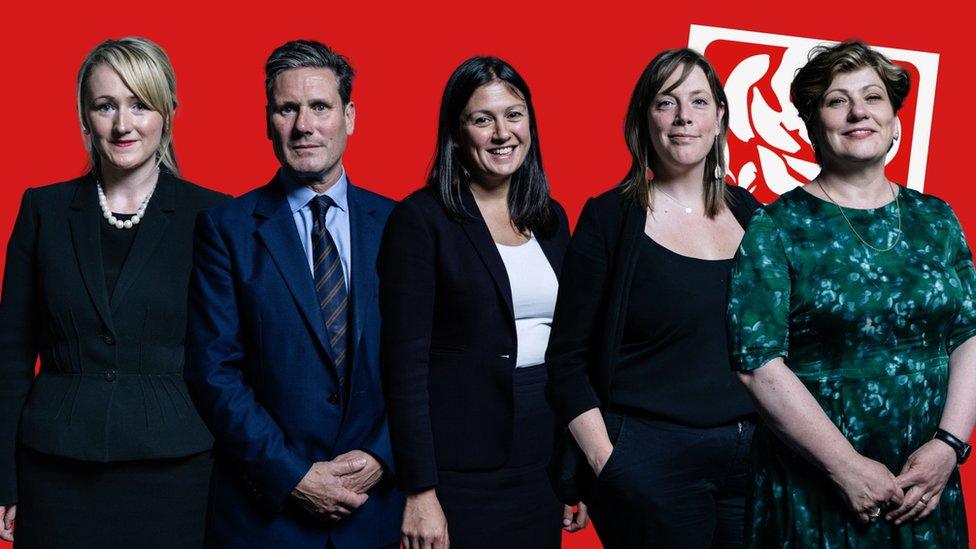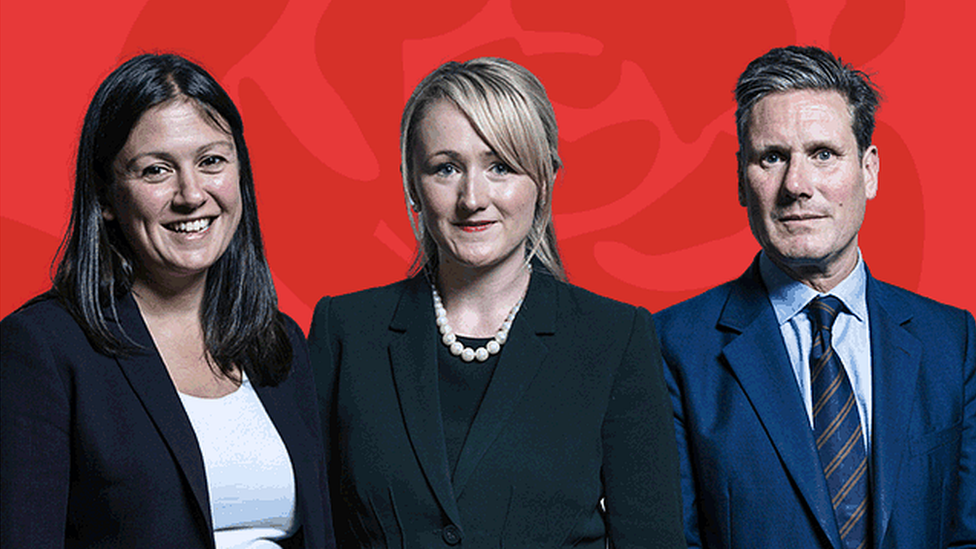Labour leadership: Two-day window opens for would-be voters
- Published

Applications have opened for the public to become registered supporters of Labour and thereby eligible to vote in the party's leadership elections.
Party members and supporters will elect a new leader and deputy leader to succeed Jeremy Corbyn and Tom Watson.
The 48-hour window for registering as a supporter closes at 17:00 GMT on 16 January.
Applicants must be on the electoral register, meet Labour's membership criteria and pay a fee of £25.
Anyone who has supported another political organisation other than the Labour Party within the last two years will be excluded.
Those wanting to vote in the election could also join the party as a member - but the cut off for eligibility is 20 January.
Five candidates - Rebecca Long Bailey, Lisa Nandy, Jess Phillips, Sir Keir Starmer and Emily Thornberry - remain in the contest for leader after securing enough nominations from MPs and MEPs.
The hunt for a new Labour leader was triggered when Mr Corbyn stepped down following the party's fourth general election defeat in a row.
Rosena Allin-Khan, Richard Burgon, Dawn Butler, Ian Murray and Angela Rayner are currently in the running for the deputy leader role.
The results will be announced at a special conference in London on 4 April.

How will the leadership race unfold?
14-16 January: Application period for registered supporters
15 January - 14 February: Second stage of nominations from Constituency Labour Parties (CLP) and affiliates, including unions
18 January: The first of seven scheduled hustings takes place in Liverpool
20 January: Freeze date for voting eligibility for new members and affiliated supporters
16 February: The last scheduled hustings is held in London
21 February: Ballot opens
2 April: Ballot closes
4 April: Special conference to announce results

In order to make it onto the final ballot paper, candidates now need to secure support from 5% of local constituency parties or three Labour affiliates, including at least two trade unions, adding up to 5% of affiliated members.
The UK's largest union Unison has thrown its support behind Sir Keir, while the National Union of Mineworkers says it is backing Ms Nandy., external
Seven hustings have been scheduled between 18 January and 16 February - in Liverpool, Durham, Bristol, Cardiff, Birmingham, Glasgow and London.
Ms Nandy objected to the locations of the hustings tweeting: "We can't seriously be planning to have a debate about the places we lost without going to any of the places we lost."
And Sir Keir called for hustings to take place in "each region and nation" of the UK.

Will registered supporters make a difference?
Analysis by political correspondent Helen Catt
It's not how many registered supporters sign up that could make the difference but rather who they are.
A large-scale return of those who left the party during the Corbyn years could favour Jess Phillips, who's been highly critical of the recent leadership.
While Sir Keir Starmer looks like the current frontrunner, Rebecca Long Bailey could benefit from an influx of supporters who want to keep the Corbynista flame alive.
Although it's worth remembering that Labour uses a preferential voting system for its leader so the second preferences of registered supporters could be key too and Sir Keir looks best-placed to pick up many of those.

- Published18 February 2020
